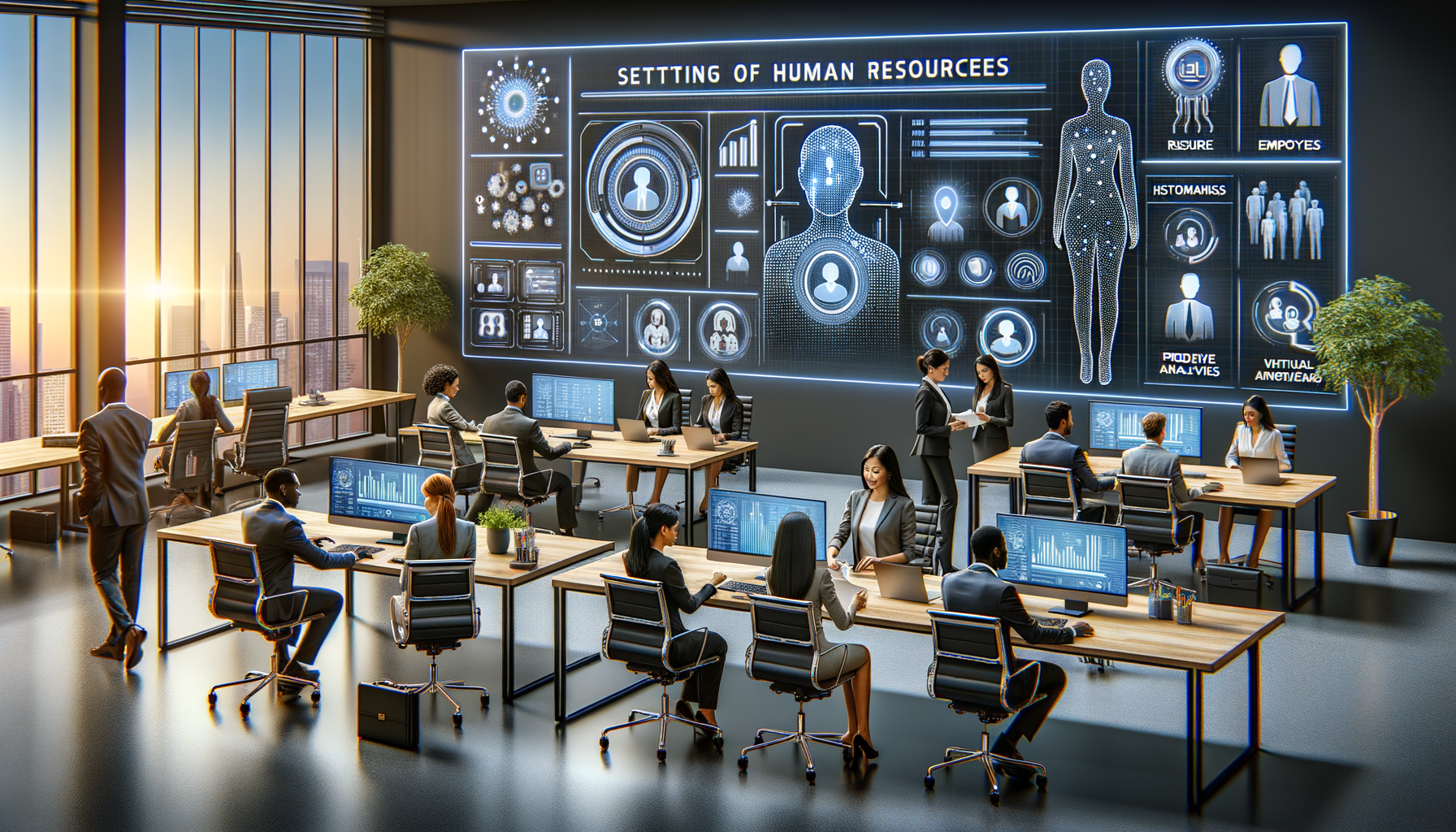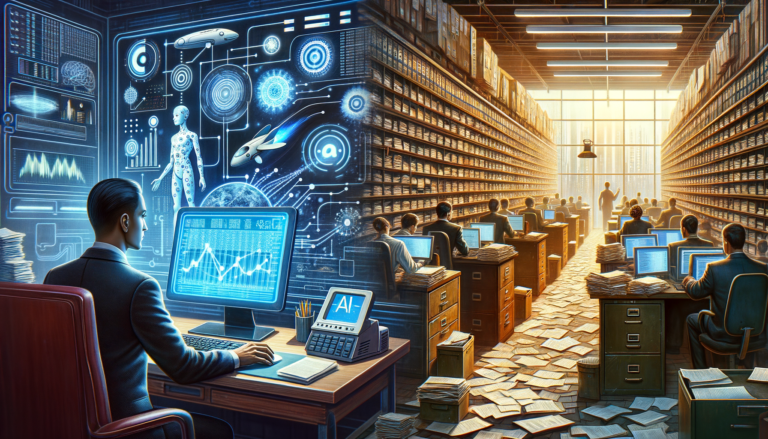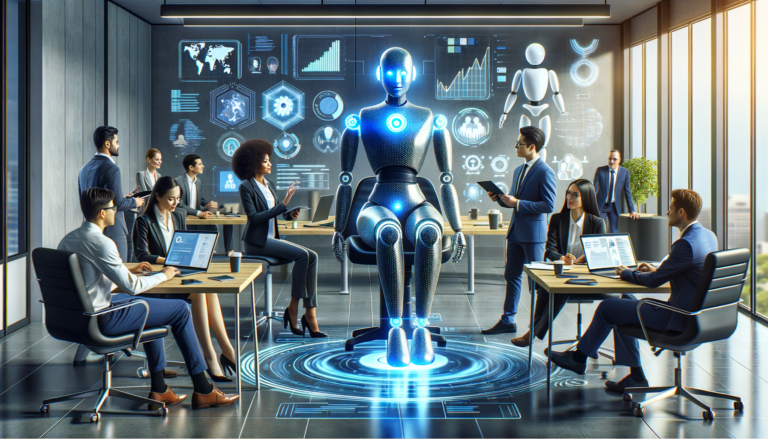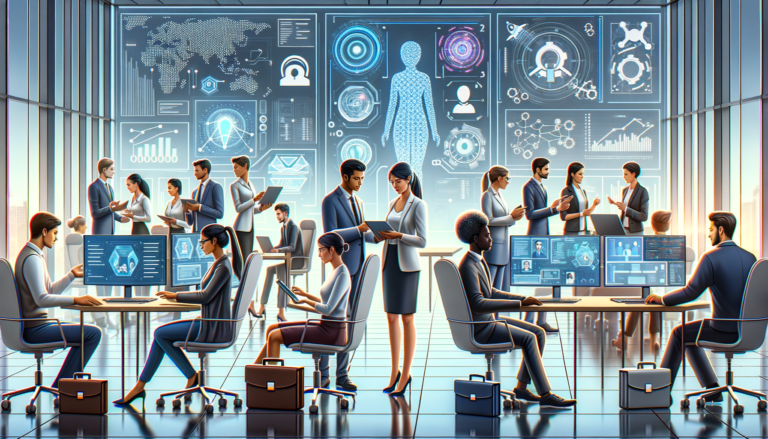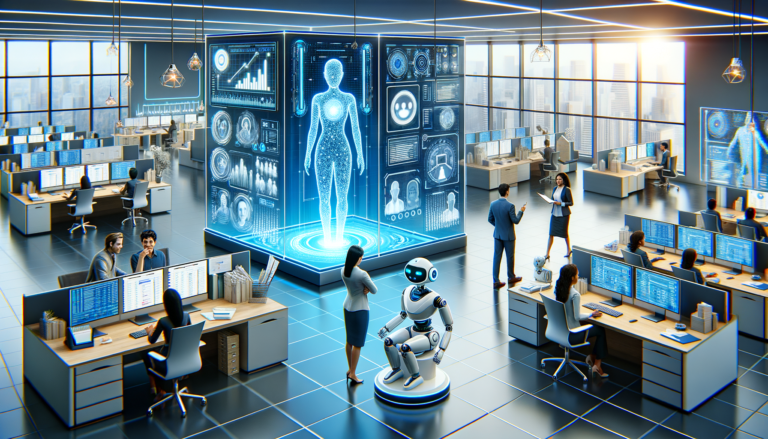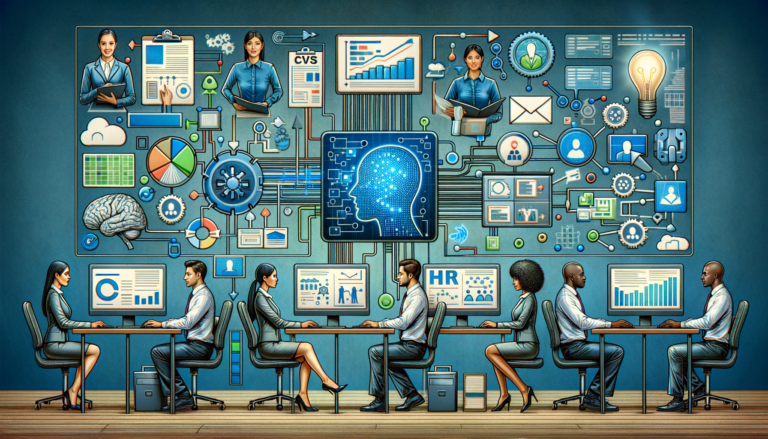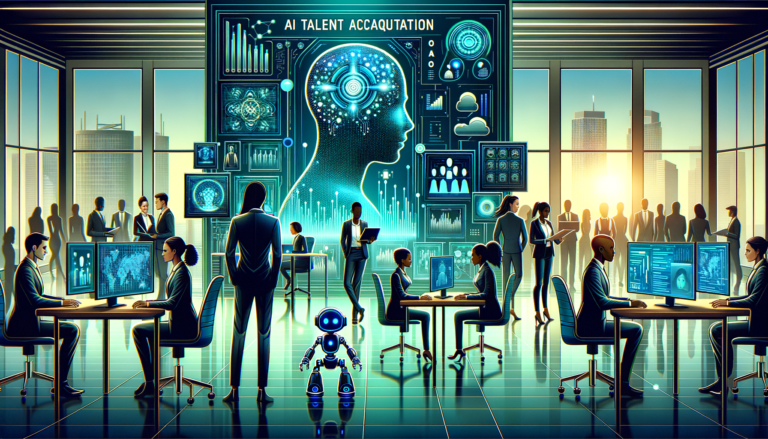Did you know that 88% of companies globally are already using AI in some form for HR? That’s right, artificial intelligence is no longer just a buzzword – it’s reshaping the way we work and manage our workforce. In this article, we’ll dive into the exciting world of AI in HR and explore how it’s transforming everything from hiring to employee engagement. Get ready to discover the game-changing potential of AI in human resources!
The Rise of AI in Human Resources
Artificial Intelligence has come a long way in the world of Human Resources. It’s fascinating to see how quickly things have changed, isn’t it? Just a few years ago, the idea of AI in HR might have seemed like science fiction, but now it’s becoming increasingly common.
Let’s take a quick trip down memory lane. AI started making its way into HR processes in the early 2010s, primarily focusing on automating repetitive tasks. But why the sudden interest in AI for HR? Well, there are a few key drivers behind this integration.
First, there’s the need for increased efficiency. HR departments are often stretched thin, and AI can help lighten the load. Then there’s the desire for data-driven decision-making. AI can process vast amounts of data and provide insights that humans might miss.
And the numbers don’t lie! According to recent studies, over 50% of HR departments worldwide are now using some form of AI in their processes. That’s a pretty significant uptake, wouldn’t you agree?
AI-Powered Recruitment: Finding the Perfect Fit
Now, let’s talk about one of the most exciting applications of AI in HR: recruitment. Gone are the days of manually sifting through hundreds of resumes. AI-driven resume screening and candidate matching are revolutionizing how companies find talent.
Imagine having a virtual assistant that can chat with candidates, answer their questions, and even schedule interviews. Well, that’s exactly what AI-powered chatbots are doing in the hiring process.
But it doesn’t stop there. Predictive analytics are helping companies identify top talent before they even apply. It’s like having a crystal ball for hiring!
One of the most promising aspects of AI in recruitment is its potential to reduce bias. By focusing on skills and qualifications rather than demographic information, AI algorithms can help create a more diverse and inclusive workforce.
Enhancing Employee Experience with AI
Once you’ve got great talent on board, how do you keep them engaged and growing? That’s where AI comes in for employee experience.
AI-powered onboarding programs can personalize the experience for each new hire, making them feel welcome and prepared from day one. And when it comes to learning and development, AI can provide tailored recommendations based on an employee’s skills, interests, and career goals.
Need to request time off or update your personal information? Virtual assistants are making employee self-service easier than ever.
But perhaps one of the most intriguing applications is sentiment analysis. By analyzing communication patterns and feedback, AI can help measure employee satisfaction and flag potential issues before they become problems.
AI in Performance Management and Productivity
Performance management is another area where AI is making waves. Real-time performance tracking and feedback are replacing annual reviews, providing more timely and actionable insights.
AI can also help identify high-potential employees through predictive analytics. This can be invaluable for succession planning and talent development.
When it comes to goal setting and alignment, AI can help ensure that individual goals are in line with broader organizational objectives. It’s like having a GPS for your career!
And let’s not forget about workforce planning. AI can analyze trends and predict future needs, helping organizations allocate resources more effectively.
The Ethics and Challenges of AI in HR
Of course, with great power comes great responsibility. The use of AI in HR raises some important ethical considerations.
Data privacy and security are major concerns. After all, HR deals with sensitive personal information. How do we ensure this data is protected?
There’s also the potential for algorithmic bias. If not carefully designed and monitored, AI systems could perpetuate or even amplify existing biases.
That’s why human oversight is crucial. AI should be a tool to support HR professionals, not replace them entirely.
Speaking of HR professionals, there’s a growing need for upskilling in this area. HR teams need to understand how to work alongside AI effectively.
The Future of AI in HR: What’s Next?
So, what does the future hold for AI in HR? Some exciting trends are emerging.
We’re seeing AI being integrated with other technologies like virtual reality for immersive training experiences, and blockchain for secure record-keeping.
As AI becomes more prevalent, it’s likely to impact job roles and skills requirements across organizations. The ability to work effectively with AI may become as important as traditional soft skills.
Preparing for this AI-driven workplace of tomorrow is crucial. It’s not just about implementing new technologies, but about fostering a culture that embraces innovation and continuous learning.
What do you think? Are you ready for the AI revolution in HR?
Conclusion
As we’ve seen, AI in HR is not just a passing trend – it’s a powerful force that’s reshaping the way we manage and nurture talent. From streamlining recruitment to enhancing employee experiences, the potential of AI in human resources is truly exciting. But remember, with great power comes great responsibility! As HR professionals, it’s up to us to harness the benefits of AI while addressing the ethical challenges it presents. Are you ready to embrace the AI revolution in HR? The future of work is here, and it’s time to jump on board!

